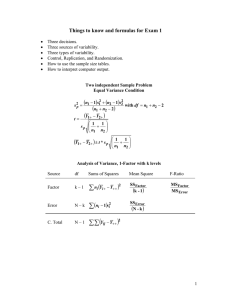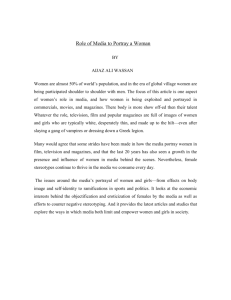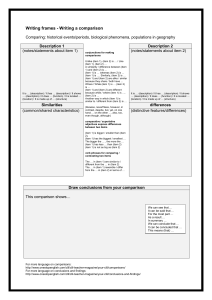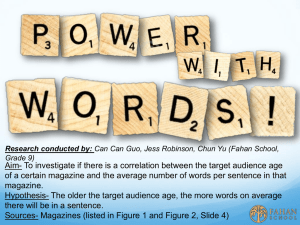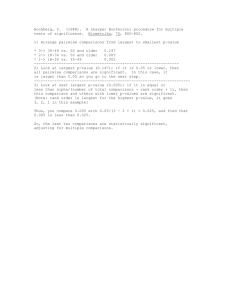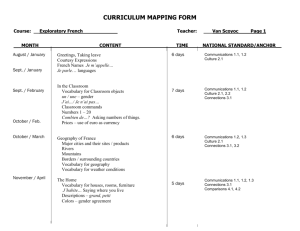Social comparison and body image in adolescences
advertisement
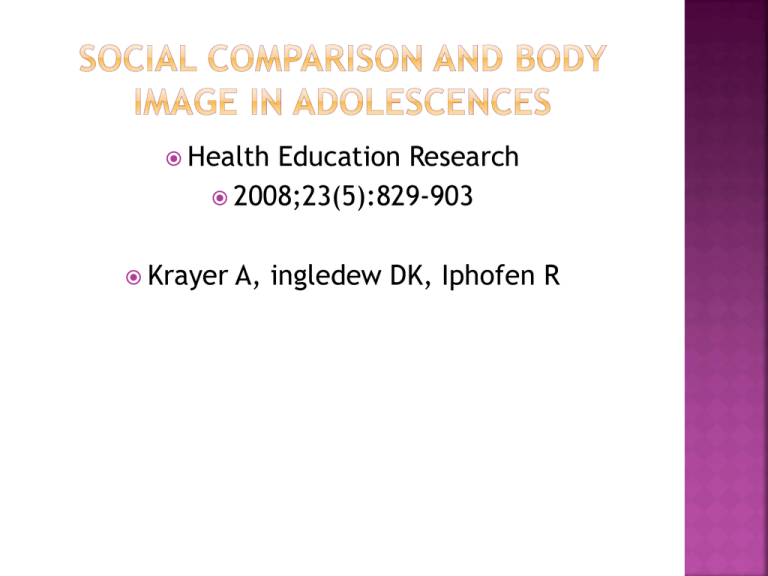
Health Education Research 2008;23(5):829-903 Krayer A, ingledew DK, Iphofen R Could social comparison theory better inform health promotion and prevention efforts in the area of adolescent’s body image perception? In recent years social comparison theory has been increasingly used as a framework to elucidate how media and peer message might influence individual’s perceptions of their bodies Comparison target Comparison attribute Outcome of comparison Suggested that individuals process social information by comparing themselves to establish similarities and differences. Depending on the context of comparison ,differences comparison appraisals might be employed to deflect threats ,learn from others or evaluate one’s standing. Research in the area of social comparison theory has shown that different comparison appraisals might be used depending on the context of the comparison Self evaluation Self improvement Self enhancement To gather information about one’s own status in relation to others in term of attributes, skills and social expectations How do my muscles compare to my peers Are employed to learn how to improve a particular characteristic or for problem solving How could I learn from her to be more attractive Protect self esteem and self worth Allow individual to maintain positive views the self Encompass discounting information as not relevant to the self and describing the other as inferior or less advantaged “He might be muscular but he has no sense of humor” Research in the area of body image has mainly focused on evaluative comparisons Interventions for eating disorders and body image dissatisfaction focus on challenging self evaluations concerned with body shape and weight The aims of this study was to explore social comparisons to idealized media images and messages Grounded theory approach 20 participants(2 schools,12-14 years) Convenient sampling The study topic was introduced as experienced with media with emphasis on appearance Questions focused on specific themes such as type of media consumed(interest in particular sections of magazines, favorite programs on television) What do you like about teen magazines? Would you talk with your friends about how people in magazines and on television look? How do you think magazines influences the way you would like to look? Evaluate comparisons are more likely to produce negative effects Improvement comparisons could produce positive or negative effects ,improvement comparison are more likely to have positive outcomes if the individual believes that they might attain the ideal and the other is not perceived as a competitor
